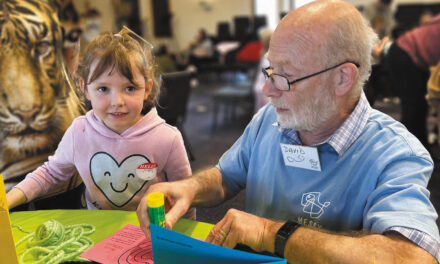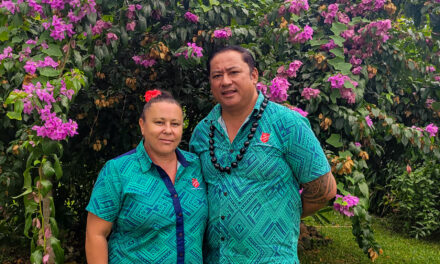
LAB Legacy Locked In

SALT talks with National Director of Youth Missions Training Major Mat Badger and Youth Missions Programme Coordinator Annika McLeod to get the lowdown on The Salvation Army’s LAB (Living And Breathing) Youth Work Apprenticeship. A decade on from its launch, not only is LAB producing well-trained and qualified youth workers, but a clear legacy is emerging.
Recipients of Salvation Army youth work in schools, corps (churches) and communities are coming of age and choosing youth work as their vocational calling. The three-year LAB Youth Work Apprenticeship becomes the next obvious step for some young people inspired by local youth workers who are graduates of the programme. But wait there’s more—some of those same students not only go on to become experienced youth workers, but also take up the challenge of leading as LAB facilitators. Mat’s one of the founding developers of the LAB programme and is excited but not surprised by this emerging legacy.
‘One of the basic premises of classic youth work practice is consistency. The foundation of youth work is long-term consistent relationships through the ups and downs of the turbulent teenage years,’ explains Mat.
Local LAB legend
‘Jon Riki from Roskill South, Auckland, is a great example of someone committed long term to his local community. Jon’s been doing youth work for 10 years in Roskill South and is now one of our LAB facilitators,’ says Mat. ‘He loves his community and knows personally the difference consistent youth workers make in the lives of young people. A local graffiti artist even painted Jon as a local legend—how cool is that?! Jon believes in the LAB programme and this year four of our six LAB students are learning from him. Jon is a local legend and a LAB legend!’
The mission of the LAB Youth Work Apprenticeship is to prepare and strengthen youth workers to carry out faith-centred, evidence-informed, best practice, ethical and relevant youth work. It’s a full-time, three-year commitment that involves studying towards an approved qualification while based at a Salvation Army LAB site, with on-the-job training and mentoring from a LAB facilitator.
‘The reason for the LAB site is that any student of youth work is required to connect into an agency to do their practical work,’ explains Mat. ‘As The Salvation Army, we make the commitment to provide apprentices with a place to do their practical work in a safe, consistent environment with a supportive facilitator.’
After identifying a good practitioner of youth work who has the capacity to train someone else, the LAB facilitators are entrusted with apprentices. ‘It’s the classic Jesus model,’ says Mat. ‘Year one is watch what I do, year two is let’s work together, followed by year three which is you do the work, and we’ll debrief together. There’s always an action-reflection process throughout the whole apprenticeship because we want to set students up to succeed.’
Quality qualification
In terms of formal study, the standard apprenticeship track involves two years’ Praxis training, with year three negotiated with the student based on their strengths or special interests. For some, those initial two years are cross credited to the Bachelor of Youth Development, while others may begin theological study through Laidlaw College. Either way, students come out with a solid qualification recognised across the sector, and quality practical LAB training that sets them up for success.
Mat adds that some students have uniquely tailored individual plans depending on their prior study and experience. Increasingly, students are coming with higher levels of education. ‘We used to have most students applying straight from school or shortly after, but we are starting to see students in their mid- to late-20s hook into the LAB programme. This year we have a student who already has a Bachelor of Ministry and a Bachelor of Youth Development, so we fast-tracked her to year three of the LAB apprenticeship. She is doing practical training under the LAB facilitator alongside a specific personal development year, which includes additional courses like the 12-Step Programme.’
Real world youth work
Mat and Annika describe youth work as exciting, challenging, heartbreaking, heartwarming, bittersweet, miraculous, tedious, exhausting, fulfilling, rewarding and spiritually formational. A past LAB student herself, with a Bachelor of Youth Development, Annika pulls no punches when it comes to the reality of youth work.
‘Youth work is hard! You will be challenged in every way. So be ready. Be ready to see God. Be ready to wonder where the heck God is, but then have to say sorry later because looking back you can clearly see God in it all. Although youth work is hard, the feeling you get when you see young people thrive and get to know our God makes everything worth it. And that’s the constant reminder of the ‘why’ of youth work.’
Legend!
Thinking about youth work as a vocation?
We’re looking for people interested in becoming Salvation Army youth workers who are committed and passionate disciples of Jesus. Applicants are expected to have some experience of youth work practice, along with endorsement from their corps officer/centre manager and divisional youth secretary/regional youth officer. For more information go to www.firezone.co.nz









